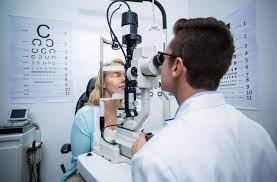Glaucoma is among the most prevalent causes of irreversible blindness worldwide. It's termed the "silent thief of sight" because it frequently develops with no initial signs, making frequent eye exams crucial for catching and treating it early. While it’s common to visit Calgary glasses stores to check your vision or update prescriptions, it's essential to understand that clear vision doesn’t always mean healthy eyes. Preventive care and knowledge of glaucoma are key to maintaining long-term eye health.
Here in the blog, we will examine glaucoma, why it is so dangerous, and how to safeguard your eyesight through routine care and making informed decisions.
What is Glaucoma and Why Should You Care?
Glaucoma is a collection of diseases affecting the optic nerve that result from increased pressure within the eye. This pressure may cause progressive vision loss, usually beginning at the outer periphery of your visual field. Since symptoms are uncommon early on, many individuals don't know they have glaucoma until permanent damage has already taken place.
The most common form is open-angle glaucoma, which advances slowly, whereas angle-closure glaucoma may be sudden in onset and demands urgent treatment. If left untreated, glaucoma may advance to tunnel vision and ultimately blindness.
Who Is Most at Risk of Developing Glaucoma?
Curious as to what makes you susceptible to glaucoma? A number of things give you a higher likelihood: age over 60, family history of glaucoma, being African, Asian, or Hispanic, and certain medical conditions such as diabetes or high blood pressure. Long-term use of corticosteroids could also put you at risk.
That's why regular eye exams aren't merely about keeping your prescription up to date—they're about defending your entire eye health.
How Can You Tell If You Have Glaucoma?
How do you know if you have glaucoma without apparent symptoms? That’s the tricky part. You won't feel or sense anything out of the ordinary early. However, as the condition progresses, symptoms can include blurred vision, trouble seeing at night, and blind spots in the peripheral vision. Others see halos around lights, and with more severe glaucoma, eye pain or sudden loss of vision.
If any of these signs appear, don't ignore them—schedule an eye exam immediately.
What's the Importance of a Glaucoma Eye Test?
A glaucoma eye test is essential because it helps detect the disease in its earliest stages—before noticeable vision loss begins. These tests include measuring eye pressure (tonometry), assessing the optic nerve, checking corneal thickness, and evaluating your field of vision.
These tests are quick and painless, and getting them done routinely, especially if you're in a high-risk group, can help you catch glaucoma early and begin treatment before damage occurs.
Can Glaucoma Be Treated or Reversed?
Although glaucoma damage cannot be reversed, treatment can prevent or halt additional vision loss. The objective is to reduce the pressure in your eye using medicated drops, laser therapy, or surgery. The severity and advancement of the disease determine treatment.
A healthy lifestyle can also aid eye health—keep your blood pressure well-controlled, have a balanced diet, use eye protection when appropriate, and do not smoke.
Why Should You Act Now?
If you're past due for an eye exam or replacing your lenses, it's the ideal time to check your general eye health. Most Calgary glasses shops now provide complete eye exams in-store, making it simpler than ever to be proactive.
Whether you've been experiencing changes in your eyesight or not, being screened regularly can be the difference between having healthy eyesight and losing it forever.
Conclusion
Glaucoma isn't predicted. That's why it's crucial to understand your risks, be mindful of subtle vision changes, and ask for the appropriate eye tests. Saving your vision begins with knowledge; one eye test might preserve your sight.
